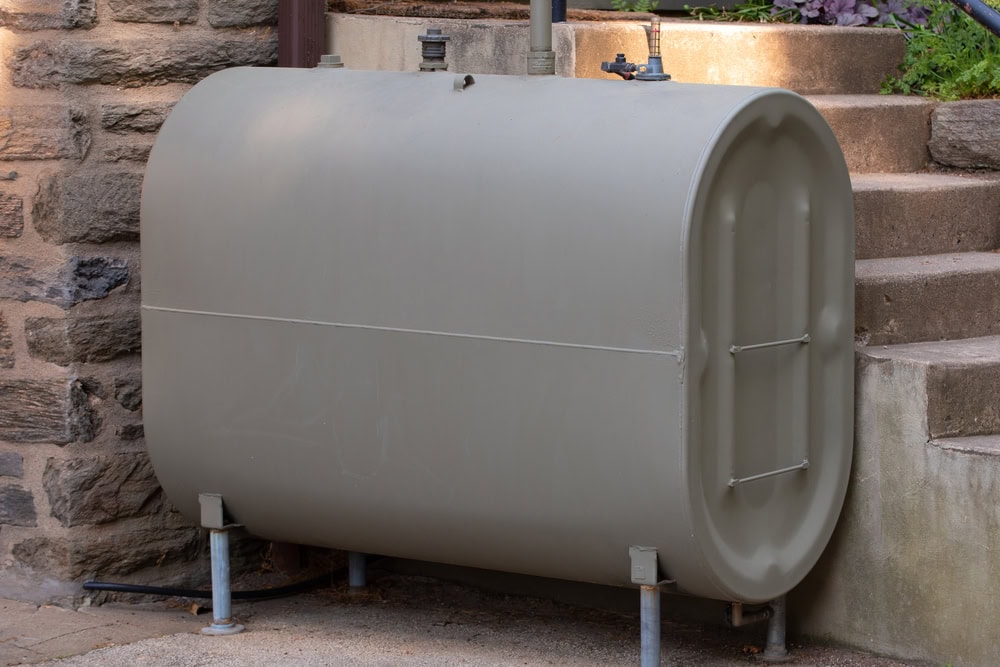Recognize essential oil tank replacement warning signs and upgrade advantages for optimal heating performance in Suffolk County, NY.
Share:

Summary:
Visual inspection reveals multiple indicators that signal tank replacement needs, including surface rust that penetrates beyond superficial oxidation, dents or deformation that compromise structural integrity, and corrosion around fittings, welds, or connection points where leaks typically begin. Oil stains on concrete floors or soil discoloration around outdoor tanks indicate active leaks that require immediate attention and often signal widespread tank deterioration beyond economical repair. Strange odors near the tank area, particularly petroleum smells that persist or intensify, suggest fuel vapor escape that poses safety and environmental risks. Tank age becomes critical after 15-20 years for steel tanks and 25-30 years for fiberglass units, as corrosion and material fatigue accelerate regardless of visible condition. Heating system performance problems including frequent air locks, fuel contamination, or delivery difficulties may indicate tank internal deterioration affecting fuel quality and system operation. Water contamination in fuel samples suggests tank bottom corrosion or compromised seals that allow moisture infiltration, creating fuel quality problems and potential system damage. Consolidated Energy – Suffolk Oil recommends professional tank inspections every 3-5 years after tanks reach 10 years of age, as trained technicians can identify problems before they become visible to homeowners. Gauge malfunctions, fill pipe problems, or vent cap issues often indicate broader tank system deterioration requiring comprehensive evaluation rather than isolated repairs.
Deteriorating tanks create fuel contamination that reduces heating efficiency by 10-20%, forcing systems to consume more oil while producing less heat output, directly increasing annual heating costs. Water infiltration through corroded tank bottoms creates fuel quality problems that damage burner components, requiring more frequent service calls and replacement parts that add to operating expenses. Emergency tank replacement during heating season typically costs 25-40% more than planned off-season installations due to urgent scheduling, limited contractor availability, and premium pricing for immediate service.
Deteriorating tanks create fuel contamination that reduces heating efficiency by 10-20%, forcing systems to consume more oil while producing less heat output, directly increasing annual heating costs. Water infiltration through corroded tank bottoms creates fuel quality problems that damage burner components, requiring more frequent service calls and replacement parts that add to operating expenses. Emergency tank replacement during heating season typically costs 25-40% more than planned off-season installations due to urgent scheduling, limited contractor availability, and premium pricing for immediate service.
Want live answers?
Connect with a Suffolk Oil expert for fast, friendly support.
Modern oil tanks incorporate advanced materials and design features that provide superior performance, safety, and longevity compared to older installations. Double-wall construction with leak detection systems provides early warning of potential problems while containing any fuel release within secondary containment barriers. Corrosion-resistant materials including fiberglass, high-grade steel with protective coatings, and composite construction extend tank life to 30-50 years with minimal maintenance requirements. Advanced monitoring systems offer wireless gauge technology, smartphone connectivity, and automatic delivery coordination that eliminates manual tank checking while preventing runouts. Environmental protection features include spill containment, overfill prevention, and leak detection that meet current regulatory standards while protecting property values. Installation improvements include better access for maintenance, improved ventilation, and code-compliant positioning that enhances both safety and functionality. Consolidated Energy – Suffolk Oil helps customers evaluate upgrade options based on specific property requirements, local regulations, and individual preferences for monitoring and delivery systems. Energy efficiency improvements through cleaner fuel storage and better system integration can reduce annual heating costs by 8-15% while improving system reliability. Insurance benefits may include reduced premiums for newer tanks that meet current safety standards, while property values increase through modern heating infrastructure that appeals to potential buyers.
Tank upgrades provide opportunities to optimize fuel storage for different oil grades, delivery schedules, and seasonal usage patterns that weren’t possible with older tank configurations. Larger capacity tanks enable volume purchasing that reduces per-gallon costs while providing storage for favorable market timing. Consolidated Energy – Suffolk Oil offers tank sizing consultation that balances storage capacity with property constraints, delivery logistics, and cost optimization strategies. Modern tank installations accommodate automatic delivery monitoring, budget payment systems, and fuel quality management that enhance convenience while reducing costs.
New tank installations optimize delivery access through improved positioning, modern fill connections, and standardized fittings that reduce delivery time while preventing complications. Wireless monitoring systems coordinate automatically with delivery services, providing precise fuel level data that optimizes delivery timing and quantities. Modern tank installations include safety features like automatic shutoff valves and spill prevention equipment that protect against delivery-related incidents while maintaining regulatory compliance.
Proactive oil tank upgrades provide Suffolk County homeowners with improved safety, reduced operating costs, environmental protection, and enhanced property values that far exceed replacement investments over the tank’s service life. Modern tank technology offers monitoring capabilities, efficiency improvements, and reliability features that weren’t available when older systems were installed, making upgrades beneficial even for tanks that appear functional. Consolidated Energy – Suffolk Oil provides expert consultation on tank replacement timing, sizing, and technology options that optimize both immediate installation and long-term performance for your specific property and heating needs. Planning tank upgrades during off-season periods provides better contractor availability, competitive pricing, and adequate time for proper installation without heating season pressure. Contact Consolidated Energy – Suffolk Oil today to schedule a tank evaluation and explore upgrade options that enhance your Suffolk County home’s heating reliability, safety, and efficiency for decades to come.
Continue learning:
Useful Links
Our Social Media